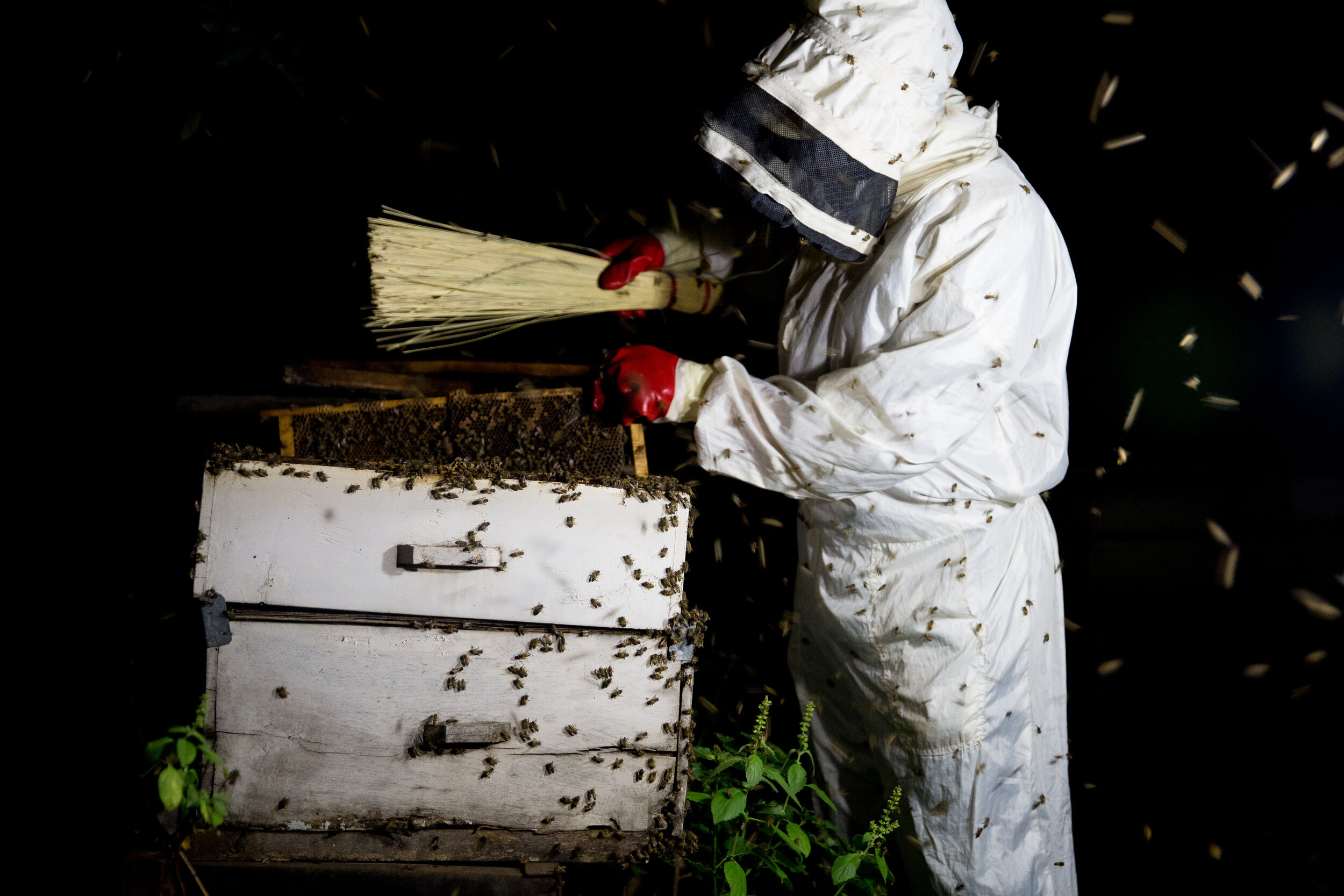Photo by Miki Iwamura
Words and Photos by Miki Iwamura
Homa Bay County, Kenya has a lush landscape comprised of hills and valleys, farmlands, and small towns. Local markets are bustling with people selling goods, produce, and fish. But the landscape is changing. The hills are now bare as a result of deforestation, and the fish sold at the market is not local but imported.
During British colonial rule, cotton, groundnut, cassava, and sugarcane farming were introduced to the area. Cotton production became a major industry, generating revenue for the British empire. Following Kenya’s independence in 1963, farmers continued to grow cotton but without institutional support to improve production methodology and technology, they were unable to keep up with competing suppliers. In the last 30 years, maize and potato farming have become popular in this region due to their low maintenance and high yield. These crops create a greater risk of soil erosion due to their high nutrient needs, and because nutrients in the soil are depleted far more quickly, more and more land is being cleared to plant new crops. The region is experiencing deforestation at an increasing rate due to unregulated charcoal production, livestock grazing, and settlements.
Photo by Miki Iwamura
In 2012, the UN Environment Programme encouraged Kenyan officials to increase the country’s forest cover from six percent to the recommended global minimum of ten percent. The government had promised to achieve this by 2022 and is now requiring farmers to maintain ten percent of forest cover on their land. In some parts of Homa Bay County, reforestation is underway and monitored by the Kenyan Forest Service, however, much of the farmlands are not regulated. A report released by the Kenyan Ministry of Environment and Forestry in 2018 states that the current forest cover in Kenya is 7.4 percent.
In the town of Oyugis, a grassroots organization aims to respond to the needs of the Homa Bay County community. Upendo Foundation International is comprised of 14 dedicated people working to equalize the poverty gap in the community through long-term planning and support. Many of the staff are Luo, an ethnic group originating from areas of Western Kenya, Northern Uganda, and Northern Tanzania - all regions bordering Lake Victoria, who traditionally worked in fishing and agriculture.
“I was just out of high school struggling to grow kale on poor soil when Upendo visited the Mang’ang’a Youth Group, where I was a member. They trained us in organic farming and conservation agriculture. I practiced this on my own land and the yield improved so much. I began working for Upendo because I wanted the poorest of the poor in the community to have the same chance I had,” said Kennedy Obongo, Community Development Manager.
Photo by Miki Iwamura
Upendo’s work is an interconnected web that provides the community with the five basic needs of life; food, health, education, environmental and socio-economic security. One of their foremost projects is providing food security through self-sustaining farming and micro-financing. They support various community groups for widows, farmers, women, and youth through education and training. They teach conservation farming and provide mentorship, as well as monetary support and scholarships.
Farmers supported by Upendo are trained on how to diversify their crops and have started planting small forests on their property, including certain species of trees that attract bees. Beekeeping is a perfect model for environmental conservation and food security, and honey is in high demand in Kenya. Capable of producing up to 19 percent of a farmer’s income, beekeepers such as Mary Achieng have planted Moringa trees, whose large flowers attract bees and are also believed to have many health benefits.
Photo by Miki Iwamura
Alfred Otieno is the son of a farmer. His father worked hard as an agricultural officer for the Kenyan government, but always had difficulty saving money. Otieno, determined not to pick tea leaves as his father did, decided to become his own boss.
The trees on Otieno’s farm not only attract bees but also filter the rainwater coming down from the hills, where it collects in a nearby communal dam. Though Otieno has just six beehives, he is able to use a portion of his earnings from selling honey to make and sell bricks, which multiplies his income. With this, he is able to pay for his family's healthcare and has sent three of his children to school.
Over the years, Upendo has trained farmers in apiary inspection and harvesting. In return, participants train other potential beekeepers and the community continues to grow. The organization also contracts a carpenter in Oyugis to make the wooden frames and beehive boxes, thereby keeping all aspects of honey production local.
Photos by Miki Iwamura
Upendo has three honey processing units located in Homa Bay County. Here, beekeepers can extract and package their honey to sell collectively as Imani Pure Natural Honey. Currently, Upendo cannot keep up with the demand for honey from the initiative. Overseas partnerships have helped to create a system where supporters can buy beekeeping kits for the local farmers, but more donors are needed to help keep up with demand. The costs associated with transporting hives to the honey processing center are also an issue for many farmers hoping to take on beekeeping. The staff at Upendo face similar issues when it comes to outreach in the area. “We have two motorbikes but that is barely enough for our staff to get to the large areas we cover in Homa Bay County,” said Zelpha Odiaga, Chairperson for Upendo.
Photo by Miki Iwamura
Despite certain setbacks, the staff at Upendo are finding solutions in order to improve the socio-economic standing of the Homa Bay County community. Although broad in scope, the work Upendo does is an example of how food, health, education, environment, and socioeconomic security are not separate, but a linked system in order for a community to be self-sustaining.
Click here to learn more about Upendo and support their beekeeping program.



















